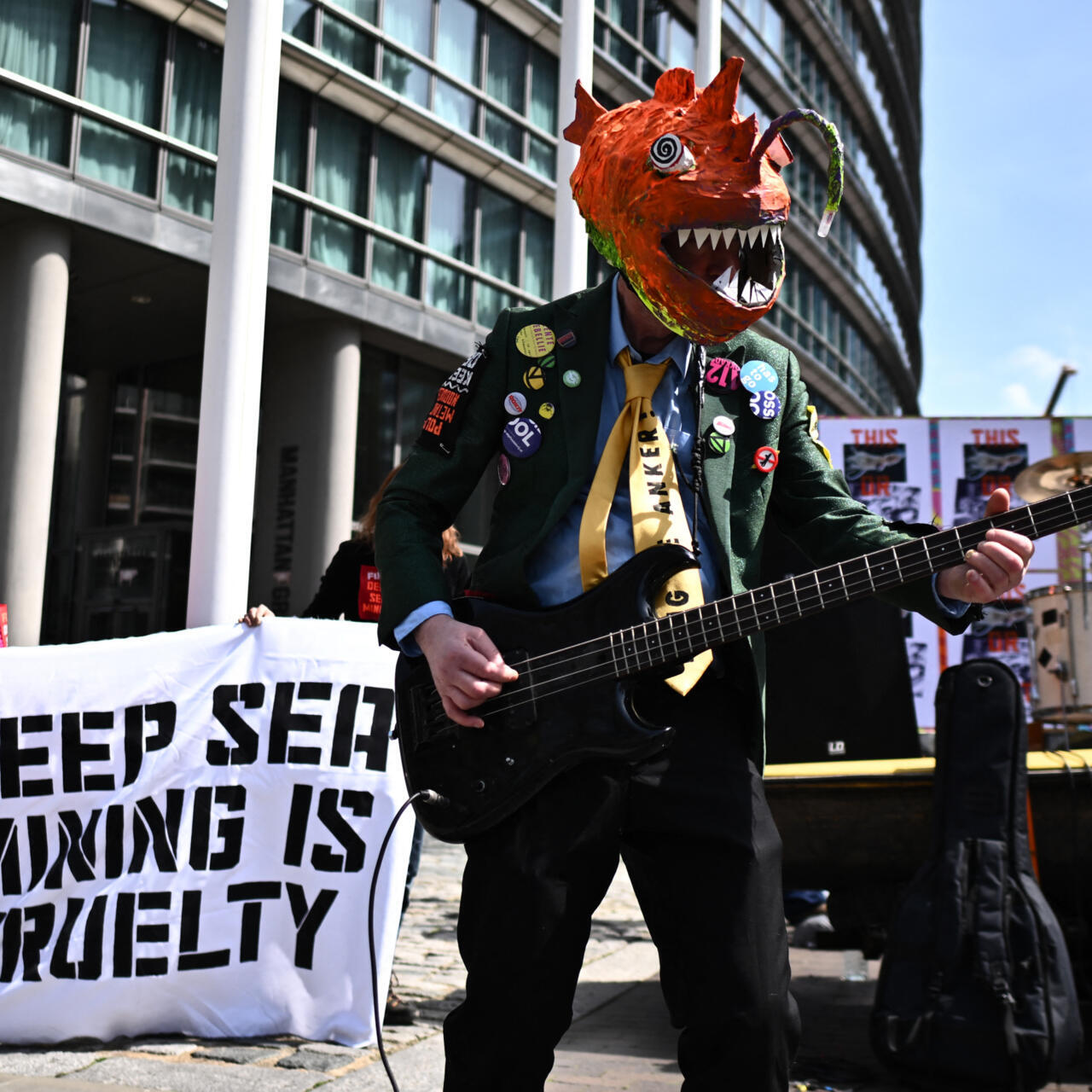As more and more countries express support for a moratorium on deep-sea mining, the Canadian company The Metals Company has announced its intention to partner with the United States to extract copper, zinc, and other minerals from the depths of the Pacific Ocean.
Will Trump’s “Drill, baby, drill” reach the ocean floor?
That’s the high-stakes gamble of Canadian company The Metals Company (TMC). On Thursday, March 27, its CEO Gerard Barron revealed he is in talks with the U.S. government to begin mining operations in the Pacific Ocean.
For the past thirteen years, Barron has had his sights set on the vast Clarion Clipperton Zone, a 4.5 million square kilometer area between Hawaii and Mexico, rich in polymetallic nodules packed with nickel, copper, cobalt, and manganese—all critical components for green technologies like EV batteries, wind turbines, and solar panels.
Having already invested hundreds of millions of dollars in exploratory work, Barron is eager to launch the company’s commercial operations.
Taking advantage of legal limbo
Technically, deep-sea mining is supposed to wait for the establishment of an international mining code. Under the authority of the International Seabed Authority (ISA)—created by the UN Convention on the Law of the Sea and ratified by over 160 countries—states have been trying to agree on such a regulatory framework for over a decade. However, negotiations remain stalled. The latest round in March 2025 once again yielded no progress.
But TMC has decided not to wait. “We said we would like the regulations to be in place when we begin, but it’s not a requirement,” Barron stated in an earlier interview with France Inter.
Initially, the company planned to file its first exploitation contract request with the ISA by June 2025, through its subsidiary Nauru Ocean Resources Inc., backed by the small island nation of Nauru.
Now, however, TMC is bypassing the ISA and looking to form a new partnership—with the United States. The company intends to submit its application directly to the U.S. National Oceanic and Atmospheric Administration (NOAA), currently undergoing internal changes initiated under President Donald Trump’s leadership.
« We believe we have enough knowledge to begin, » the company’s leadership insisted in a statement published on March 27. This new « path, » they argued, offers « the best chance of obtaining a commercial license and starting operations as soon as possible. »
While the United States has yet to publicly respond to TMC’s proposal, a draft executive order is reportedly circulating at the White House to fast-track the issuance of deep-sea mining permits in international waters, according to Reuters. This move is unsurprising, given that Donald Trump has repeatedly expressed his desire to reduce U.S. dependence on China for critical minerals, eyeing resources not only in the Panama Canal, Greenland, and Canada, but now possibly in the deep sea as well.
« The U.S. has never ratified the United Nations Convention [on the Law of the Sea], which leaves a legal gray area that the company has managed to exploit, »
laments Sofia Tsenikli, advocacy lead at the Deep Sea Conservation Coalition.
Meanwhile, Leticia Carvalho, the newly appointed Secretary-General of the International Seabed Authority (ISA) and a renowned oceanographer, immediately condemned the initiative:
« Any unilateral action would constitute a violation of international law and undermine the core principles of multilateralism, » she said, expressing her « deep concern. »
The Precautionary Principle
« The stakes are high, » insists Sofia Tsenikli. « There’s a growing scientific consensus that we must urgently wait before touching the ocean floor. »
The reason? We still know very little about what lies hundreds of meters beneath the surface—in these high-pressure, pitch-black environments—and the ecosystems that live there remain largely mysterious.
« It’s not just about protecting unknown species, » she adds.
« Disrupting the seafloor could also affect the ocean’s ability to capture carbon. »
The ocean is Earth’s largest carbon sink, absorbing 93% of the excess heat generated by human activity, according to the UN. This makes it a key ally in the fight against climate change.
Adding to the caution is a major discovery published in July 2024: While conducting an environmental impact study in the Clarion-Clipperton Zone, scientists discovered that oxygen appears to be emitted from the polymetallic nodules—the very ones targeted for mining. Dubbed « black oxygen » in a study published in Nature Geoscience, this oxygen does not come from living organisms. If confirmed, this would be the only known oxygen production process not based on photosynthesis.
“We now know that our actions on the seafloor can have very long-term, even irreversible impacts,” warns Tsenikli. “With so many unknowns, it’s a risk we just can’t afford to take.”
A Growing Push for a Deep-Sea Moratorium
On Monday, March 31, during the SOS Ocean summit in Paris, a team of 15 international scientists—commissioned by French President Emmanuel Macron—called for a 10- to 15-year moratorium on deep-sea mining to give time to « better understand how these ecosystems function. »
This growing concern—and the likely motivation for TMC turning to the U.S.—has led more and more countries to back a moratorium. So far, 32 countries have voiced support for halting the mining code’s development. Several major companies have joined the call, including Google, BMW, Samsung, and more recently, Apple.
“How can we create a legal framework for a practice whose actual impacts we don’t even understand yet?”
summarizes Tsenikli.
France is among the countries advocating for the moratorium.
“No action concerning the ocean should be taken without scientific guidance,”
declared Emmanuel Macron at the close of the SOS Ocean summit on March 31.
Just two months before the next United Nations Ocean Conference, set for June in Nice, Macron announced he would make this issue a key priority of the event.
“The next ISA negotiations will take place just after the summit in Nice, in July. That makes it a perfect moment for states to publicly back this moratorium,”
concludes Sofia Tsenikli.
Source: france 24


